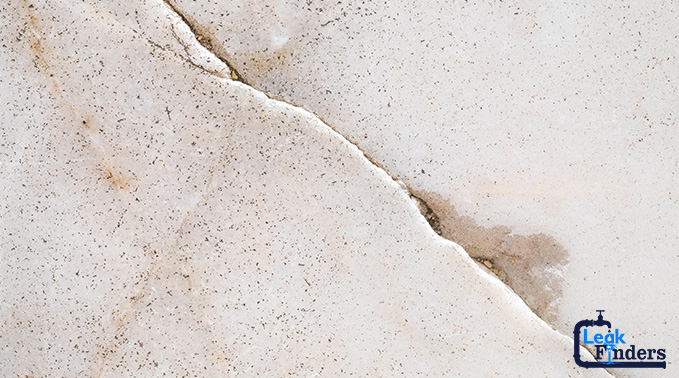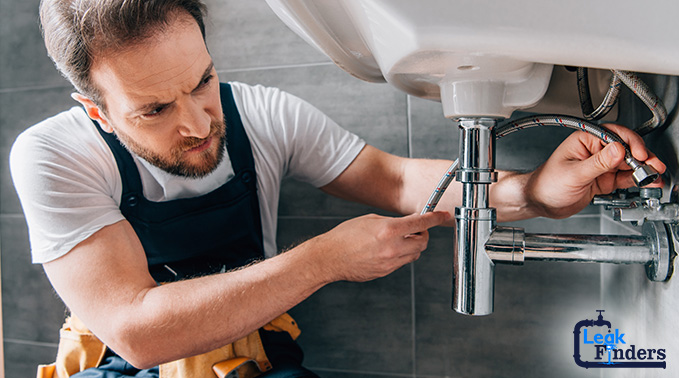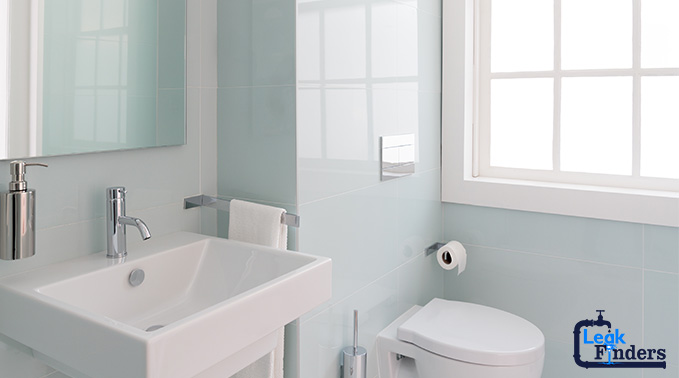
A slab leak is found below the concrete foundation of your home which protects the plumbing and pipes below from freezing during the winter. If there is a leak in any of these pipes, water will be released below your home’s foundation causing decreased water pressure, damp floors and high water bills. If you want to know how to prevent these slab leaks, it’s important to learn the reasons they might occur. To help with this, the pros at Leak Finders have prepared a list of some of the most common causes of slab leaks.
1. Improper Installation
If the pipes below the concrete foundation of your home were installed improperly or they are of poor quality, leaks will be inevitable. If there were any bends or dents in your pipe during installation, there are higher chances of them bursting and leaking. This is particularly common in copper pipes as they have a higher likelihood of corroding because they are more vulnerable. You might also find that older pipes under older homes have the same issue. Get in touch with your local plumber or leak detection services to ask questions about the pipes underneath your foundation.
2. Abrasion Over Time
During use, pipes tend to wear out and deteriorate over time. They also rub against gravel, concrete and dirt, and this constant friction can further wear them down. This is especially common with hot water pipes—when they expand, they tend to rub against rough materials more. This constant abrasion combined with age and general pressure on pipes can lead to a leak underneath your concrete foundation.
3. High Water Pressure
An increased water pressure can damage pipes in your home, including the ones underneath your home’s concrete slab. This stress on your pipes can lead to slab leaks and if they are left ignored, can increase your water bill, damage your fixtures and reduce your plumbing’s lifespan. Make sure you have your water pressure regulated between 40 and 60 PSI.
4. Water Quality
Having poor water quality and chemistry can also damage your pipes. Having hard or acidic water or having extremely soft or alkaline water can both be damaging and corrosive on your plumbing below the concrete. It’s important to have water with the right pH—ideally between 6.5 and 8.5—so it doesn’t hurt your plumbing and isn’t harmful on your hair or skin.
Want to know more about the various causes of slab leaks? Get in touch with the professionals at Leak Finders. Whether you need help detecting and troubleshooting slab leaks, sewer line leaks, concrete leaks or utility leaks, our team of experts will be more than happy to assist you. We guarantee you the best work at the best price and won’t be happy until all our customers are satisfied! Call us today at 804-767-3580 or schedule a service with us on our website! Our team of high-quality technicians looks forward to hearing from you!



